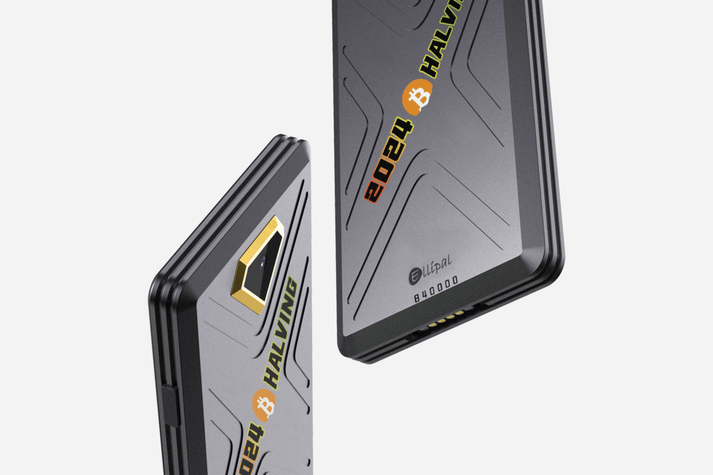Unlock the Secrets of Bitcoin Cold Wallets: Your Ultimate Guide to Secure Crypto Storage!
As the world of cryptocurrency continues to expand, the need for secure storage solutions has become paramount. Bitcoin cold wallets have emerged as a preferred choice for many investors who prioritize safety in their digital asset management. Unlike hot wallets that are connected to the internet, cold wallets store bitcoins offline, making them less susceptible to hacking and cyber threats. As interest in cryptocurrency grows, understanding the importance of cold wallets in safeguarding your digital wealth is essential. This guide will delve into what bitcoin cold wallets are, how they operate, and why they are a critical component of secure cryptocurrency storage.

What is a Bitcoin Cold Wallet?
A bitcoin cold wallet is a type of cryptocurrency wallet that is not connected to the internet and provides a secure way to store bitcoins. Its primary function is to keep private keys—the essential credentials that allow you to access and manage your bitcoins—offline, far removed from potential online threats. This contrasts sharply with hot wallets, which are always connected to the internet and are therefore more vulnerable to hacking attempts and malware. Cold wallets come in various forms, including hardware wallets, paper wallets, and even air-gapped computers. The inherent security benefits of using a cold wallet make it a preferred option for long-term storage, especially for individuals looking to hold onto their assets without frequent transactions.
How Bitcoin Cold Wallets Work
Cold wallets operate by storing your bitcoins offline, ensuring that your private keys remain out of reach from online threats. The mechanics behind cold wallets involve several key components. Hardware wallets are physical devices specifically designed to securely store private keys, often featuring built-in security measures like PIN codes and recovery seeds. On the other hand, paper wallets involve printing out your private keys and public addresses on a piece of paper, which can be stored in a secure place. Both options effectively isolate your assets from the internet, making it nearly impossible for hackers to gain access. A friend of mine, an avid cryptocurrency investor, swears by his hardware wallet, stating that knowing his bitcoins are stored offline gives him peace of mind, especially in an age where cyber attacks are rampant.
Benefits of Using a Bitcoin Cold Wallet
The advantages of using a bitcoin cold wallet are significant, especially for those looking to secure their investments against theft and loss. First and foremost, cold wallets offer enhanced security due to their offline status, making them immune to online hacking attempts. This level of protection is crucial for long-term storage, as it minimizes the risk of losing your assets to cybercriminals. Additionally, cold wallets are less susceptible to phishing attacks and malware, which are common threats targeting hot wallet users. Furthermore, they provide users with complete control over their private keys, eliminating reliance on third-party services. For long-term investors, the peace of mind that comes from knowing their bitcoins are stored securely offline cannot be overstated. A couple of my friends who have experienced hacking incidents with hot wallets have since switched to cold wallets, feeling much more secure in their investment strategy.
Comparing Cold Wallets to Other Types of Wallets
When comparing cold wallets to other types of wallets, such as hot wallets, the key differences lie in security and accessibility. Hot wallets, which are connected to the internet, offer convenience for frequent transactions, making them ideal for traders who need quick access to their funds. However, this convenience comes with higher risks, as they are more vulnerable to cyber attacks and phishing schemes. Cold wallets, on the other hand, are suitable for individuals who prefer storing their assets for the long haul. While they may lack the immediate accessibility of hot wallets, the trade-off is significant in terms of security. Scenarios where cold wallets are appropriate include storing large amounts of bitcoin that you plan to hold for months or years, while hot wallets may suit those who regularly buy and sell cryptocurrency. Understanding these distinctions is crucial for making informed decisions about where to store your digital assets.
Final Thoughts on Bitcoin Cold Wallets
In conclusion, bitcoin cold wallets represent a vital component of secure cryptocurrency storage, offering enhanced protection against cyber threats and providing peace of mind for investors. The importance of understanding the functionality and benefits of cold wallets cannot be overstated, especially in an era where digital assets are increasingly at risk. Whether you're a seasoned investor or just starting your cryptocurrency journey, carefully considering your options when choosing a wallet is essential. Ultimately, the right wallet can make a significant difference in how secure and confident you feel about your investments. As you navigate the world of cryptocurrency, remember that the safety of your assets is paramount.







Comments